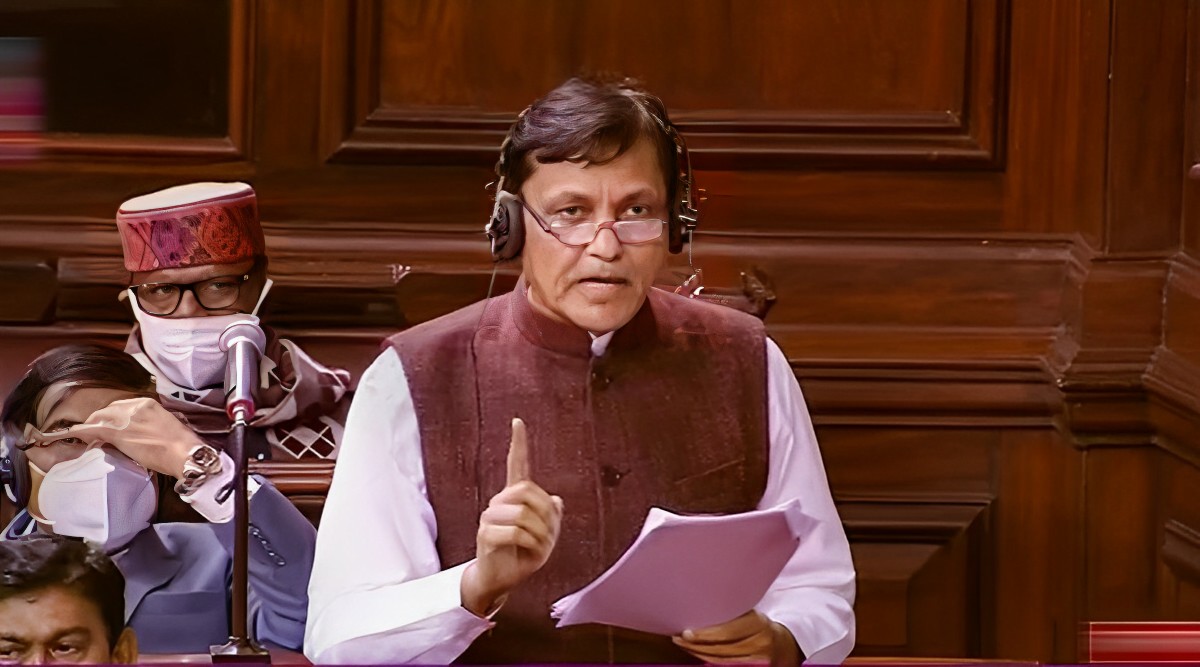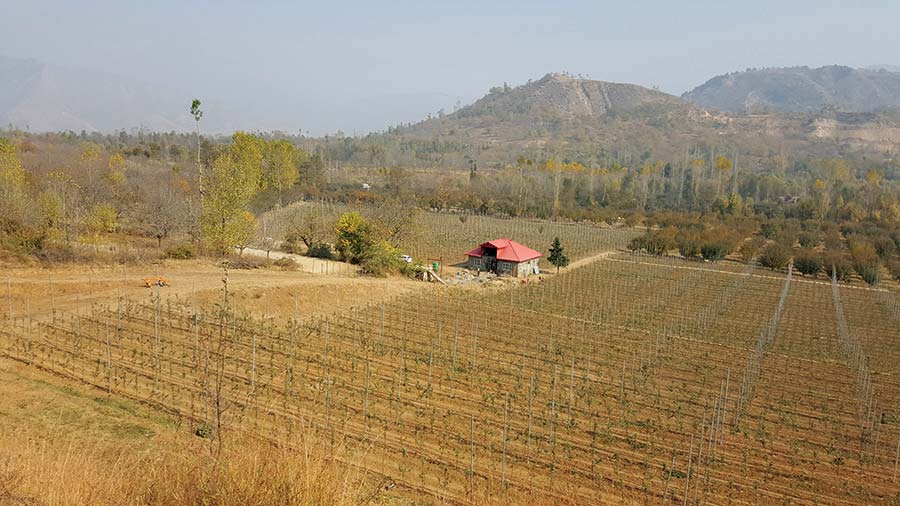by Faiqa Masoodi
SRINAGAR: The Ministry of Home Affairs (MHA) informed Rajya Sabha on Wednesday that in the last six years, a total of 802 militancy-initiated incidents were reported in Jammu and Kashmir, with 670 encounters successfully carried out. 222 civilians lost their lives during these incidents, while 328 security personnel were killed in the line of duty.

Union Minister of State for Home Nityanand Rai shared the information in a written reply when asked about the strategies and actions implemented by the Government to combat acts of militancy in Jammu and Kashmir after the revocation of Article 370 in 2019. This query was raised by parliamentarian GVL Narasimha Rao.
Nityanand Rai said after the abrogation of Article 370, the government implemented a strict policy of zero tolerance towards militancy and focused on dismantling the entire ecosystem that supports such acts in the UT.
“The approach of the Government is to dismantle the terror eco-system. Security measures are being strengthened to sustain peace and stability in JK. The strategies adopted and actions taken for containing acts of terror incidents in Jammu and Kashmir include, round-the-clock nakas at strategic points, group security in the form of static guards, intensified Cordon and Search Operations (CASO) to effectively deal with the challenges posed by terrorist organizations, sharing of intelligence inputs on a real-time basis amongst all security forces operating in Jammu and Kashmir, security arrangements through appropriate deployment. Furthermore, preventive operations involve identifying the strategic supporters of terrorism and initiating investigations to expose their mechanisms of aiding and abetting terrorism and identifications of vulnerable spots to prevent terrorist attacks on civilians. Besides, sensitizing men on the ground about the issue and initiation of measures to defeat the machination of terrorists or their mentors,” Rai said.
Providing a comprehensive overview of public and private investments in Jammu and Kashmir before and after the revocation of Article 370, Rai highlighted that Rs 5319.35 Crore has been allocated towards diverse developmental initiatives in the Union Territory from 2019 to October 2023.
When discussing the development in the region following the abrogation of Article 370, Rai highlighted the numerous measures implemented by the government across various sectors.
The ministry informed that 53 projects are being implemented at an estimated cost of s 58,477 crores under the Prime Minister’s Development Package 2015 and of these 32 projects have been completed or are substantially completed.

“In healthcare, seven new Government Medical Colleges have been operationalized, along with the addition of 800 MBBS seats, totalling 1300 seats. Academic sessions of All India Institute of Medical Sciences (AIIMS), Jammu, and AIIMS, Kashmir, are now operational. On the education front, Indian Institute of Technology (IIT), Jammu, and Indian Institute of Management (IIM), Jammu, are fully functional,” Rai said. He added that 50 new degree colleges have also been established.
Under Hydro Power generation, Rai said, MoUs have been signed for the development of five Mega Projects, contributing to a total capacity of 4134 MW. The statement further reveals that Smart Pre-paid metering is under implementation in three phases in J&K. 4.21 lakh smart meters have already been installed.
Under the Pradhan Mantri Gram Sadak Yojana (PMGSY), a total of 6,912 kilometers of roads have been constructed in the past three years. The construction of the 8.45-kilometer-long twin-tube Qazigund-Banihal tunnel, costing an estimated Rs 3,127 crore, has resulted in a reduction of travel time from Jammu to Srinagar from 8-10 hours to 5-6 hours. Furthermore, there has been a remarkable increase in air traffic to and from Jammu and Kashmir since 2019. This growth has led to the provision of night landing facilities in both Jammu and Srinagar.
To boost industrial development, Rai said that the Government of India has allocated Rs 28,400 crore. Various policies, including the J&K Industrial Policy 2021-30, aim to make the UT an investor-friendly destination. Agriculture has seen the implementation of the “Holistic Agriculture Development Plan,” covering high-density plantations and benefiting farmers with schemes like PM Kisan.

Moreover, around 82.22 lakh beneficiaries have been registered under AB-PMJAY-SEHAT SCHEME. A significant number of 8.87 lakh beneficiaries have already availed of the benefits provided by the scheme, at an estimated cost of Rs 1,325 Crore,
In Employment Generation and Recruitment, recruiting agencies have finalized 31,830 selections, both Gazetted and Non-Gazetted, after the year 2019. Furthermore, the government has implemented self-employment schemes across multiple sectors to establish sustainable income-generating ventures for unemployed youth. Since the year 2021-22, a remarkable 7.4 lakh self-employment and livelihood opportunities.















